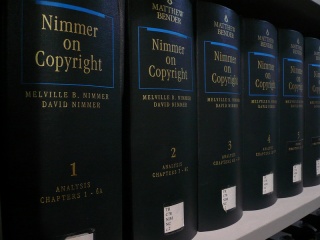On this page, we continue our introduction to the legal implications of business writing by giving a brief overview of:
- copyright,
- trademarks, and
- contract law.
Again, it is important to be aware that different countries have different legal systems and different laws, although there may be similarities between groups of countries. For example, countries like Canada, New Zealand, and Australia have legal systems that are based on traditional English law, called 'common law' [1]. There are still many similarities between these countries' laws today. By contrast, most European countries use a system of law called 'civil law', in which the primary source of law is a legal 'code' which states general legal principles.[2] Other countries may have totally different legal systems, based on their own religions, cultures, and/or traditions. There may also be variations in laws within countries; for example, if a country has a federal system of governance, constituent states or provinces may be able to enact their own laws.
The concepts outlined here are very brief, introductory generalisations; it is very important to check the precise laws in the country or countries where your business is operating.
Copyright is a legal concept which grants creators (authors, musicians, artists, and other creators) the rights of ownership and protection against unauthorised uses of their works for a fixed period. Copyright may provide protections for personal interests called “moral rights”, and attempts to balance exclusive rights of copyright holders with the interests of society at large by providing a number of exceptions and limitations.[3]
This is part of the law of intellectual property. It is a very large and complicated topic, which is beyond the scope of this course. However, as a communicator in the business world, you will need to be aware of at least the basic laws and practices that apply in the country or countries where your business operates.
- As a starting point, read these two resources:
A trademark is "a name, symbol, or design that a company uses for its products and that cannot be used by anyone else".[4] The golden 'M' of McDonalds fast-food restaurants is one well-known example of a symbol trademark. The trademark owner can be an individual, organisation, or any legal entity. A trademark may be located on a package, a label, a voucher, and/or on the product itself. It is legally recognised as a type of intellectual property.[5]
'Trade mark basics', produced by the Australian Government, provides a good introduction to trademark law as it applies in Australia.
As a business communicator, you need to make sure that you do not use any words or expressions - such as advertising slogans - that are trademarked by another business, otherwise your company could be sued.
- Try to find out what the basic law is on trademarks in your country.
A contract is a legally binding agreement between two or more 'parties' (parties can be individuals or organisations).
- To begin to understand the relevance of contract law to business communication, read these two short articles:
- 'Contracts and agreements' gives a useful overview of business contract law as it applies in the state of Western Australia. Many of the principles outlined here are similar in other regions and countries where the law is based on the English legal system.
- 'Are emails legally binding?' is an interesting article by an English lawyer on how an exchange of emails may or may not lead to a contract being created.
- In your country, can a business enter into a contract by email? If so, what features of an email exchange would make it a contract?
- ↑ https://en.wikipedia.org/wiki/Common_law#Common_law_legal_systems_as_opposed_to_civil_law_legal_systems
- ↑ https://en.wikipedia.org/wiki/Common_law#Common_law_legal_systems_as_opposed_to_civil_law_legal_systems
- ↑ https://course.oeru.org/lida103/learning-pathways/copyright/introduction/
- ↑ https://www.oxfordlearnersdictionaries.com/definition/english/trademark_1?q=trademark
- ↑ https://en.wikipedia.org/wiki/Trademark
